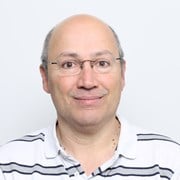The project focuses on unlocking the potential for CO2 storage in depleted oil and gas reservoirs. RETURN aims to be able to enable safe and cost-efficient long-term CO2 storage in depleted O&G reservoirs by understanding and handling cooling and CO2 phase change effects during injection. These sites are promising, as they are well characterized from previous oil and gas activities, and they have large pressure margins for safe storage.
There are, however, some technical challenges related to storage in such sites. The low pressure in the depleted reservoirs results in strong cooling and potential freezing of the well and near-well region due to the Joule-Thomson effect and associated phase changes of the CO2. This jeopardizes not only injectivity, but also near-well stability and well integrity. Large depletion can be accompanied by strong stress concentration and hysteresis effect upon re-pressurisation, added to the development of thermal stress. Today's available solutions include heating of the CO2 and gas phase injection (dictating a high number of injectors). This is both expensive and emission-intensive.
Novel solutions are thus required, which will be searched for and researched in the RETURN project, and which will ultimately enable safe and cost-efficient re-use of depleted reservoirs for long-term CO2 storage. The work, comprising both experiments, numerical modelling and larger scale field tests, will focus on understanding how CO2 flows down the well and into the depleted reservoir, and identifying safe operational windows both with respect to the near-well region and wellbores. The output of the project will be several scientific publications, as well as a handbook for industry with input for front-end engineering.
SINTEF is the coordinator in the RETURN project.
Partners
The project RETURN is funded through The ACT-programme (Accelerating CCS Technologies), Grant number 327322.
For more information on the project RETURN, visit their website

